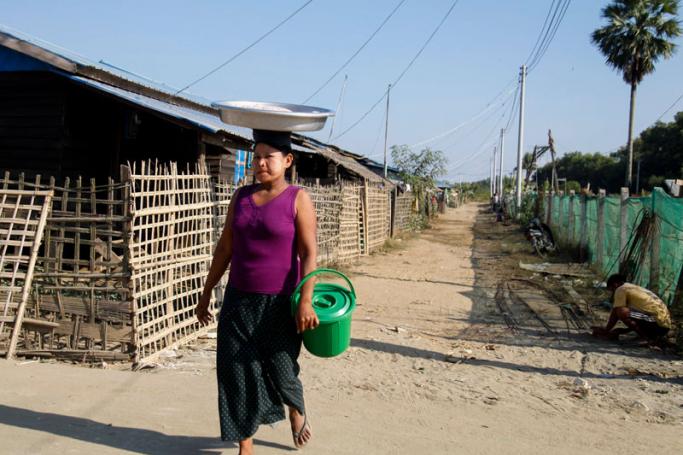The following is the statement by Dominik Stillhart, director of global operations for the International Committee of the Red Cross (ICRC), on the humanitarian situation in Myanmar:
“Fear and uncertainty hover over victims of the humanitarian crisis in Myanmar, where insecurity has shattered lives and destroyed homes.
Following the violence and fear of violence that have driven residents to flee their homes, all communities are now suffering from severe shock. It feels dangerous to move, so people stay in place, meaning limited access to schools, farm fields, markets and health care.
How can families move forward? To overcome the overwhelming fear they feel, to halt the flow over the border and to reach the point where families consider returning home, trust must be rebuilt at all levels between communities, so that they may peacefully co-exist.
People in Rakhine State have suffered from decades of underdevelopment, poverty, and intercommunal violence. If cyclical violence is to be halted, communities’ grievances must be addressed.
Though hundreds of thousands are now in need, the long-term solution is not a reflexive overreliance on humanitarian assistance, but the long-term restoration of law and order. Public services such as health care must be restored. Equally important, people must be assured that if conflict does return, those not taking part in hostilities will be protected.
Even with the beginning of a return of legal order, a dark cloud still hangs overhead, a collective feeling that tomorrow might not be better than today. People don’t know where to go or what to do, unknowns that delay a resumption of normal life.
Order in northern Rakhine, order that lasts long into the future, must be brought back. Communities have to be encouraged to exercise restraint, and the safety of civilians and property must be insured. Leaders at all levels, including inside the government and security forces, have a key role to play.
Too many people who have left their homes are living in wretched conditions: a piece of plastic above their heads, the muddy ground beneath their feet, be it in neighbouring Bangladesh, for the majority, or within Rakhine State. Some are now returning home, but many remain fearful.
Humanitarian access to northern Rakhine has been limited since the crisis began, but it is commendable that the Red Cross Movement has been given access. We encourage authorities to facilitate the work of humanitarians, as the Red Cross family alone cannot meet the massive needs.
The Red Cross Movement is distributing food to 180,000 people in northern Rakhine – chickpeas, rice and cans of fish. We have already delivered aid to communities in isolated mountain areas, and we distributed food and water to more than 5,000 destitute people trapped in desperate conditions on beaches near Maungdaw. Latrines we have dug make life healthier and more dignified. Mosquito nets we have handed out allow mothers and fathers to protect their children.
The Red Cross Movement will not be there only for the emergency phase we are currently in, but also for the rehabilitation phase, so that we can contribute to the efforts at resuming normal life.
The assistance will help in the short-run. But we also have a long-term hope: reliable law and order and a peaceful co-existence among communities, so residents no longer live in fear.”
You are viewing the old site.
Please update your bookmark to https://eng.mizzima.com.
Mizzima Weekly Magazine Issue...
14 December 2023
Spring Revolution Daily News f...
13 December 2023
New UK Burma sanctions welcome...
13 December 2023
Spring Revolution Daily News f...
12 December 2023
Spring Revolution Daily News f...
11 December 2023
Spring Revolution Daily News f...
08 December 2023
Spring Revolution Daily News f...
07 December 2023
Diaspora journalists increasin...
07 December 2023
Landslides kill 12 as monsoon batters refugee camps












